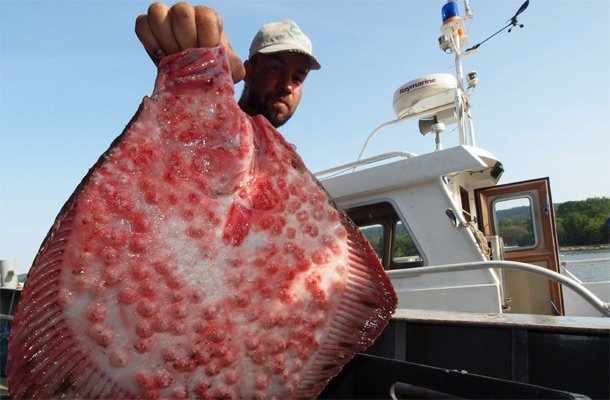Seafood, especially fish, is an indispensable source of nutrients that are the foundation of balanced eating. It contains high-quality proteins, lipids, essential biogenic elements and fat-soluble vitamins. Fish is very rich in polyunsaturated fatty acids that the human body can not synthesize on its own. Among them are such valuable omega 3 and omega 6 fatty acids. For all these reasongs, fish is recommended by the World Health Organisation as an essential healthy food.
Meanwhile, fish is a very good bioindicator for assessing pollution because it absorbs most of the toxic substances such as heavy metals and persistent organic pollutants in water. Water basins, including Bulgaria’s Black Sea, nowadays are full of many contaminants that accumulate mainly in the adipose tissue of fish. And the fattier the fish, the greater the concentration of toxic substances in it. Naturally the question arises about the safety of fish as food, and what is ratio between the benefits and risks of seafood. Here are the answers of scientists from the Department of Chemistry at the Varna Medical University, led by Professor Mona Stancheva, team leader.
The study tracks the contents of persistent organic pollutants (POPs), including DDT residues and heavy metals in Black Sea fish. The survey covers eight years, during which many experimental data was collected on industrial pollution in the Black Sea fish. The findings from the analyzes are the first ever large-scale study of food in this country set in Bulgaria's commitments under the Stockholm Convention to monitor the presence of POPs and heavy metals in the air, soil and food.

© Photo: www.mu-varna.bg
"We studied ten of the most consumed fish species for presence of POPs and DDT residues, explains Prof. Mona Stancheva. We also examined them for the presence of ten chemical elements, including the highly toxic mercury, lead, cadmium and arsenic, which accumulate in marine organisms and especially in fish. The study is based on the standards established by the EU regarding POPs. We did a comparison of contaminants and heavy metals in studies of our colleagues from Turkey. We also compared our data with those from the Marmara Sea, the Mediterranean, and published data from the U.S.. It turns out that our fish are cleaner and least affected by industrial pollution compared to the Mediterranean or oceanic species. The values of all studies confirm that our fish is a really valuable and safe food. And despite this fact, according to studies in Bulgarian nutritionists, fish consumption here is small compared to the WHO norms, even in coastal areas. To assess the quality of Black Sea fish as food, we did other studies. They regard the nutritional value and content of polyunsaturated fatty acids such as omega 3 and omega 6, we also studied fat-soluble vitamins. We have a comprehensive assessment of the quality of Black Sea fish that can serve as a database, as so far such studies have not been done." The study was conducted with the financial support of the Scientific Research Fund of the Ministry of Education. Using high-tech equipment, scholars tested the most frequently consumed Black sea fish species: sprat, gobies, mackerel, pontic shad, herring, mullet, bonito, turbot, bluefish, and garfish. "We have taken samples from different places along the Bulgarian seaside, Prof. Stancheva says. Starting from the north with Krapetz, Durankulak,Kaliakra, the Varnaregion and going south to Nessebar, Burgas, Primorsko. Our coast is not very big, so there is not much difference between the samples. We were very careful with the northern region, because there flows the Danube. We compared our results with a study made prior to 2000 of shells and sea snail. According to this comparison, in recent years the values of toxic metals such as mercury, lead, cadmium and arsenic appear to be lower than those of previous years. Unfortunately, no systematic studies were made on the most consumed fish species before 2000. Therefore, this study was divided into two stages, 2004 -2007 and 2009 - 2011. The results showed that in the second stage - these have lower values than in the previous. Thus, we concluded that in Bulgaria’s Black Sea coast, although it is a closed sea, the content of toxic substances has decreased. We explain this fact by saying that many industrial producers that were polluting the Varna Lake and the Black Sea, have not stopped operation. For example, the concentration of lead in 2011 was ten times lower than in 2004. The same is true for cadmium and mercury, so there is nothing to worry about when we eat Black Sea Fish."

© Photo: BGNES
The future plans of the team of Prof. Stancheva are to make a detailed survey of the Danubian fish. The study will include freshwater fish, as well as those grown in nurseries. Then the team will compare the results with those of saltwater fish.
English version: Rossitsa Petcova
As winter numbs the wilderness, the tortoises hibernate in their shelters, protected from the cold and outside threats. But what happens to them during this time? Where do they feel safest and when can we expect them to wake up? In the village of..
On January 25 this year, the Bulgarian National Radio will celebrate its 90th anniversary. The celebration will be accompanied by various initiatives, culminating in the ceremony of presenting the Annual Radio Journalism Awards "Sirak..
Bulgarian gardeners have been bringing the glory of Bulgaria to Croatia for more than a century and a half. They were true "ambassadors" of the humble and hardworking Bulgarian people, Diana Glasnova, author of the book Bulgarian Gardeners in..
A team of 12 Bulgarian 11th grade students, led by Elitsa Pavlova, won first place among participants from around the world in the..

+359 2 9336 661
